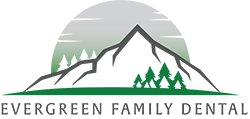Proactive Preventive Dentistry in Reno, NV
Preventive dentistry is the area of dentistry aimed to help people prevent oral disease and its further development. Preventive dentistry includes not just in-office dental care, but at-home treatments as well.
Some examples of at-home treatments include:
- Regular brushing– the American Dental Association (ADA) recommends brushing two times a day and directly after meals, when possible.
- Regular flossing– the ADA recommends flossing at least once a day.
- Rinsing with anti-bacterial mouth wash– recommended after each brushing
Proper brushing is essential in preventative dentistry. The proper way to brush your teeth is to use a soft nylon toothbrush with round-ended bristles. Next both the tooth surface and the gum line should be brushed by placing the brush at a 45-degree angle along the gum line and brushing gently in a rolling back-and-forth motion on the surface of the teeth. When brushing you should cover the inner surfaces of your teeth and then tilt the brush in order to brush the front teeth. The ideal brushing technique also involves the brushing of the tongue. Brushing should last until all teeth a gum lines have been thoroughly brushed.
